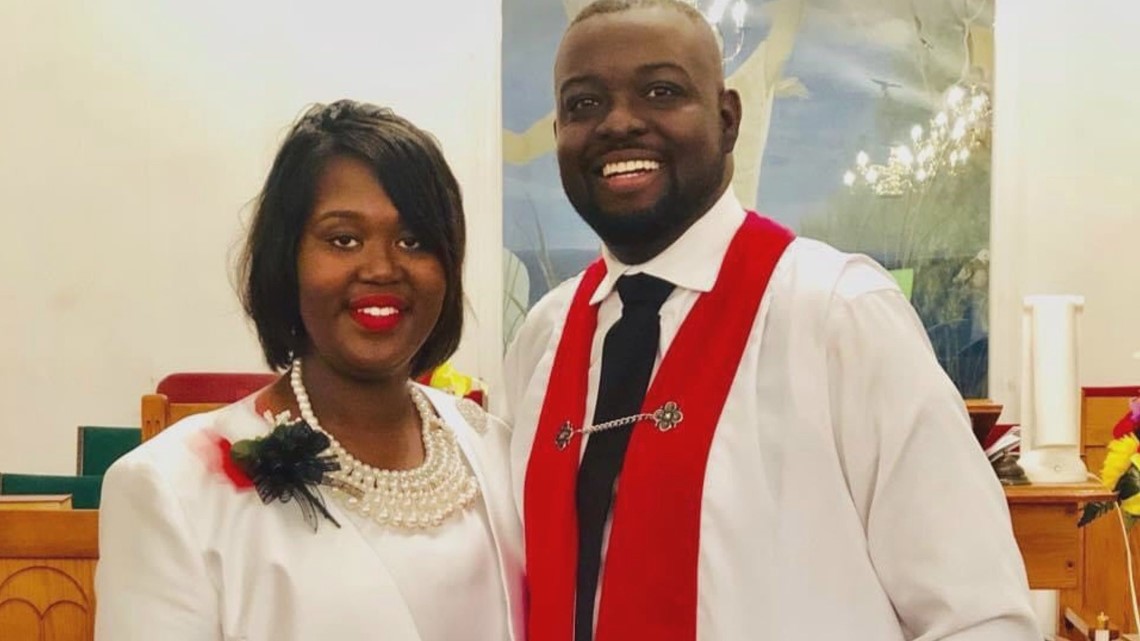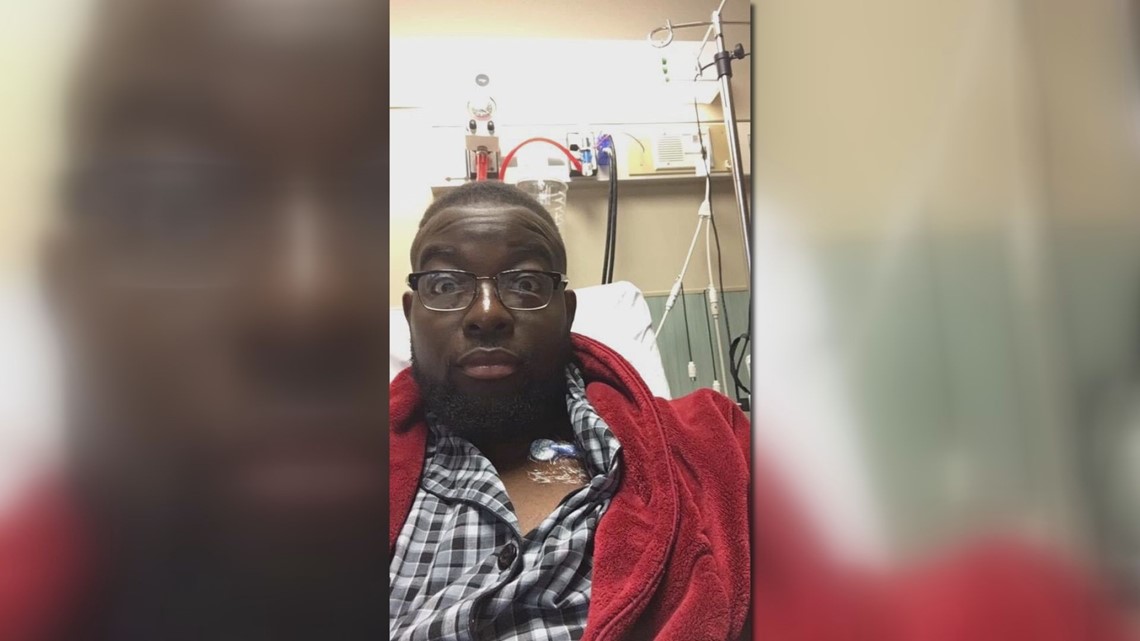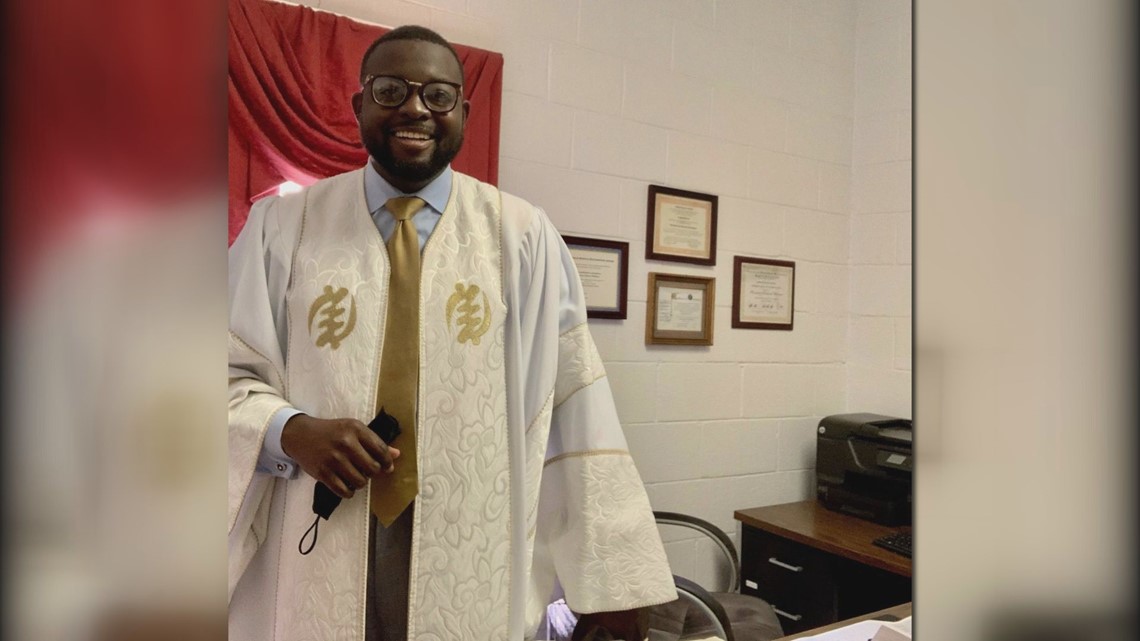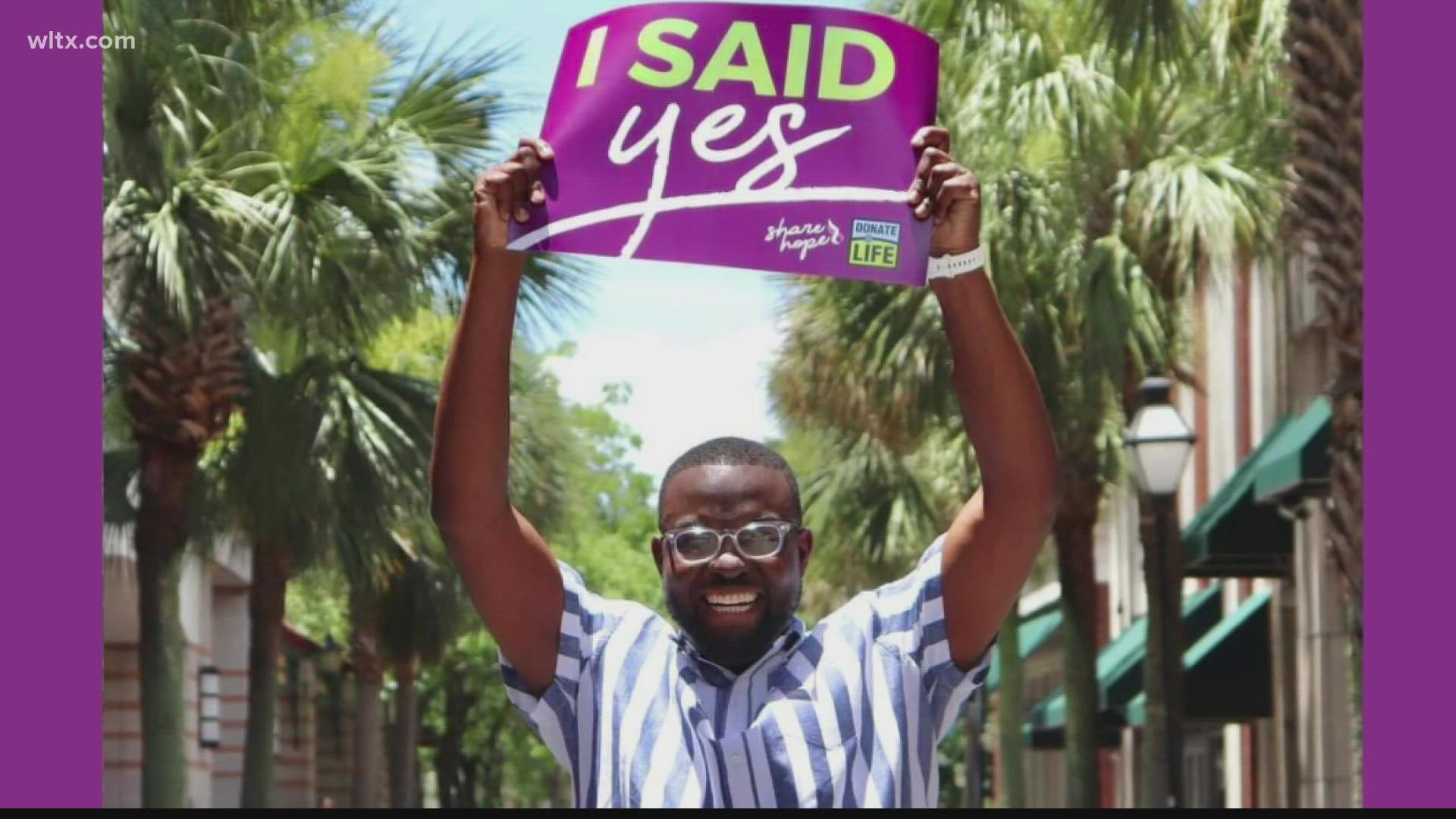COLUMBIA, S.C. — The month of August is National Minority Donor Awareness Month. Across the nation, people of color have the greatest need for organ transplants.
In fact, one in two people waiting for a life-saving transplant in South Carolina is African American.
We're learning more about a new campaign called "I Said Yes", that's working to help more people register to become an organ donor.
"Our hope through this campaign is to speak to different communities where we can share stories of families who have walked a similar journey, both from a donor family standpoint and a recipient side," said Kristine Neal, director of communications for We Are Sharing Hope SC.
Rev. Richard Williams of Myrtle Beach, South Carolina knows firsthand what it's like to receive the gift of life.
"I was experiencing swelling of the feet and I couldn't hardly breathe," said Williams. "At the time I was a music teacher. It was the first day of school and it would be my last day of school."
In 2017, Williams was hospitalized for 16 days for kidney failure. He was put on dialysis until receiving a phone call on April 24, 2020.


"I didn't think they were even giving out kidneys during the pandemic. The nation shut down in March, and here we are in April and I'm getting a call about the kidney. It was just the most unlikely time to get that call," Williams said. "There was a kidney available for me at MUSC, so we've had a year now with a new kidney."
Williams is the senior pastor of Mount Vernon Missionary Baptist Church in Nichols, South Carolina.
Since his transplant, he has traveled across South Carolina sharing his story in hopes of inspiring others to register as organ donors. Williams also spreads the importance of organ donation on TikTok.
"I got the call on a Friday, I got the kidney on a Saturday and I was up and walking on Sunday. Somebody made the comparison to Jesus on the cross having died on Friday, being buried on Saturday and getting up on Sunday," said Williams. "I was 33 at the time as well. Jesus was 33 when that happened to him."
The father of three is also an integral part of We Are Sharing Hope SC's outreach campaign to minority communities.
"African Americans are the most in need, but because of a lot of tales we have heard, we are the least in giving," he said. "I can see when they're seeing the walking miracle in myself, it makes it more tangible. They can see what happens to a gift that is selflessly given."


In the U.S., people from minority communities represent nearly 60 percent of the more than 108,000 people waiting for an organ transplant. In South Carolina, 1,300 people are on the transplant waiting list - 800 of whom are African Americans.
We Are Sharing Hope SC helps provide organ and tissue donor services to more than 80 South Carolina hospitals.
In their "I Said Yes" campaign, they are focusing on debunking myths that exist about becoming an organ donor.
"There is no cost for donation. Sometimes families feel they may be burdened by additional costs," said Neal. "Sometimes people will ask, 'Well, if I want to put it on my license, how will I know they are not going to save my life as a result?' We want everybody to know your donation designation has no impact on the care people receive in the hospital...Those first responders are there to save a person's life. Donation is only ever a consideration after all life-saving efforts have been exhausted and a patient has passed away."
One organ donor can save up to eight lives. One tissue donor can enhance the lives of 75 or more people, according to We Are Sharing Hope SC.
2020 made history in the Palmetto State with the most donors sharing the gift of life.
"We were able to facilitate 214 organ donor heroes and 325 tissue donor heroes which saved the lives of more than 514 people," said Neal.
Though more than 2.4 million people in South Carolina have registered, less than 2 percent will be eligible to become a donor at the time of their passing. More people on the donor list could signify better chances of more lives being saved.
"Now I am full of life and that's because someone was selfless enough to give me life," said Williams. "The best gift you can give someone after life is life."
On the year anniversary of his organ transplant, Williams reached out to the donor family. He said the only information he knows is his donor was a 22-year-old white male. Williams is waiting patiently to hear back.


"I don't know the sensitivities around the death," said Williams. "I pray one day they will reach out to me, but I do understand that this could still be a sensitive subject. I want them to know I'm doing well."
If you decide you want to say "yes" to becoming a life-saving donor, you can visit DonateLifeSC.org, that is the State of South Carolina's registry. You can also register at the DMV.
To learn more about the process of becoming a donor, and to learn more about We Are Sharing Hope SC, visit sharinghopesc.org. If you are an organ donor, and you'd like to share your reason for saying "yes", you're invited to participate in the non-profit's virtual walk. Learn more here.

